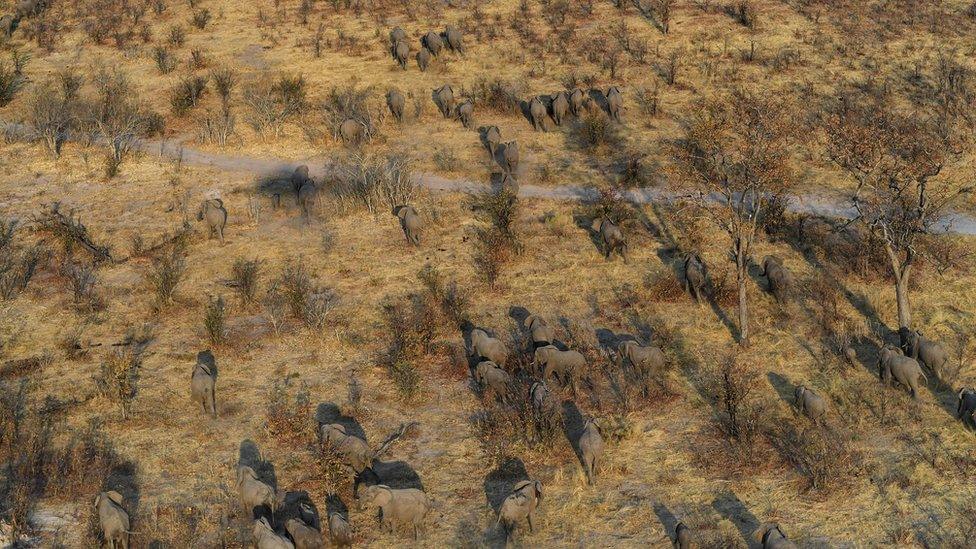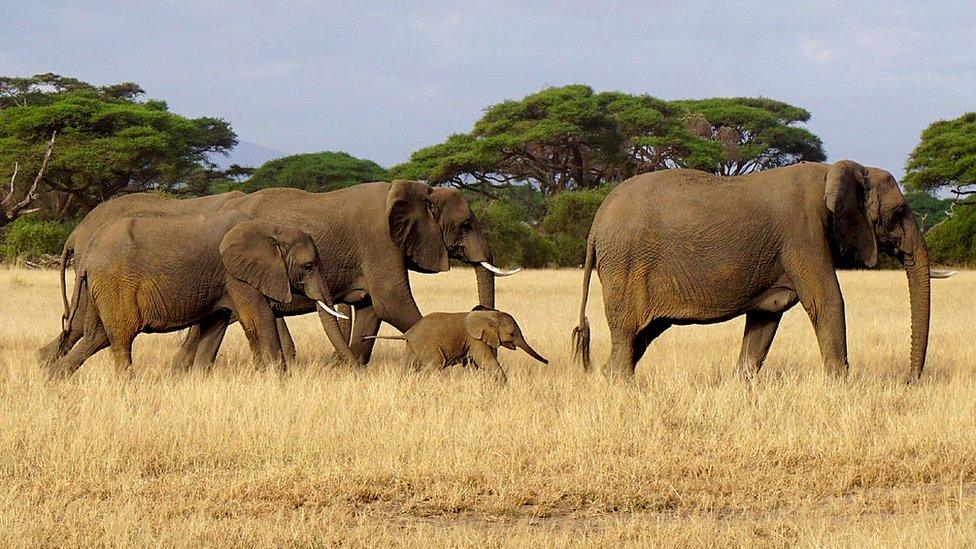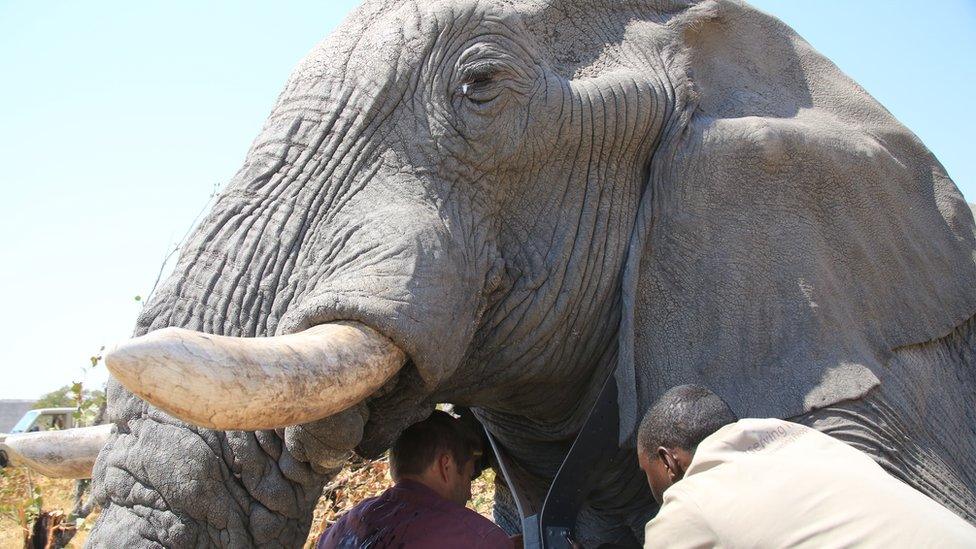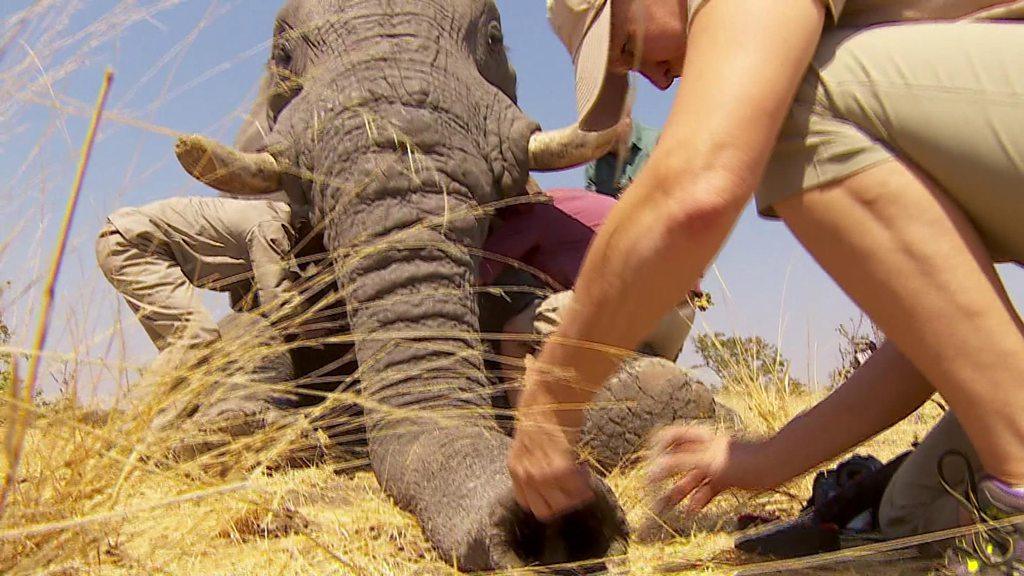Botswana mulls lifting elephant hunting ban
- Published
How would re-introducing elephant hunting affect communities and the economy in Botswana?
A report by cabinet ministers in Botswana has recommended lifting a four-year hunting ban and the introduction of elephant culling.
After months of public meetings and consultations, the report by ministers also recommends the "establishment of elephant meat canning" for pet food.
The number of elephants in Botswana is estimated to be about 130,000, which some argue is too many for the ecosystem - there is increasing conflict between wildlife and people.
But others say the country's tourism has grown dramatically since the ban came into place and that lifting it would affect the country's international reputation for conservation.
Shortly after coming into office in April 2018, President Mokgweetsi Masisi asked ministers to review the hunting ban which was implemented by his predecessor Ian Khama in 2014.
Public meetings were held and organisations, communities and individuals were asked to comment.
The report's findings recommend that:
the hunting ban should be lifted
the elephant population should be managed "within its historic range"
wildlife migratory routes "not beneficial to the country's conservation efforts" should be closed
game ranches be demarcated to "serve as buffers between communal and wildlife areas"
"regular but limited elephant culling" should be introduced
How to turn poachers into gamekeepers
President Masisi welcomed the report which will go through further consultation before being implemented.
"I can promise you and the nation that we will consider it. A white paper will follow and it will be shared with the public," he said.
"If needs be, we will give an opportunity to parliament to also interrogate it, and also allow them the space to intervene before we make a final determination."
Why is there increasing human-elephant conflict?
Surveys have shown that the elephant "range" - how far the elephants travel - has been expanding.
The director of Department of Wildlife and National Parks, Otisitwe Tiroyamodimo, said there were many factors involved, including climate change.

Elephants are straying outside their historic habitat
"We started seeing that as soon as the rain started decreasing, the vegetation started deteriorating and then the elephants naturally migrated outside their natural range because they were getting very little water and very little feed," he said.
"The number of the elephants has increased - at the same time the human population also increased, and there has been demand for more land. Infrastructure development has also caused the elephants to migrate."
But the latest survey of wildlife in northern Botswana suggests their numbers are not increasing as many rural people suspect.
Those living close to elephants support the re-introduction of hunting, arguing the amount of conflict has increased since the ban was introduced.
Elephants can be very destructive when they encroach onto farmland and move though villages - destroying crops and sometimes killing people.
What is the reaction to lifting the hunting ban?
Those previously employed by hunting safari companies lost their jobs and say they would welcome the change.
Hunting can be used as a conservation tool, by utilising wilderness that is not suitable for the high-end photographic safaris that Botswana is famous for.
But many conservationists are against the idea of culling elephants or hunting them and warn there may be a backlash from international tourists.
Tourism is Botswana's second largest source of foreign income after diamond mining.
With an election due in October, the government has to balance lifting the hunting ban to win rural votes, against the impact it may have on Botswana's international reputation as a luxury safari destination.
- Published28 April 2016

- Published31 August 2016

- Published31 August 2016
